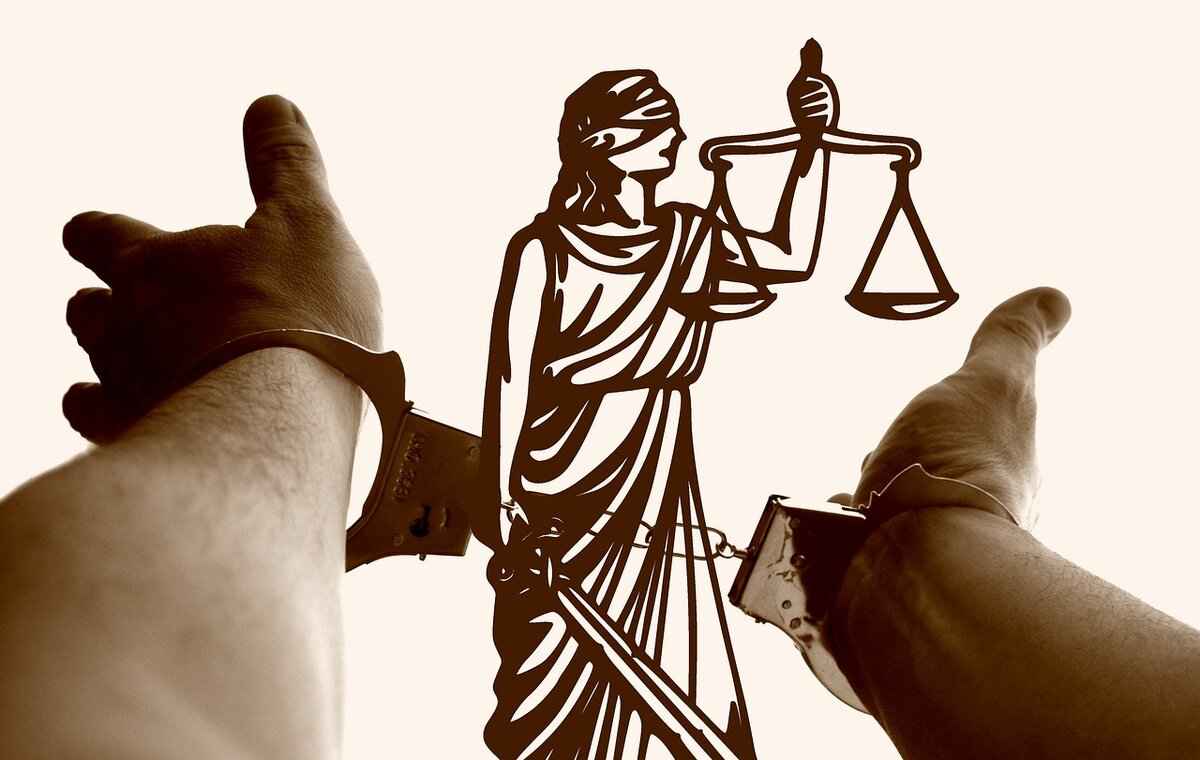This article delves into the process of requesting a court-appointed lawyer in the United States, outlining eligibility criteria, procedural steps, and the critical importance of legal representation for defendants.
Understanding Court-Appointed Lawyers
Court-appointed lawyers, commonly referred to as public defenders, serve a vital role in the American legal system. They provide legal representation to individuals who lack the financial means to hire private attorneys. These attorneys are essential in ensuring that every defendant receives a fair trial, a cornerstone of the justice system.
Eligibility for Court-Appointed Counsel
Not every individual qualifies for a court-appointed lawyer. Eligibility is typically determined based on income levels and the nature of the charges faced. Understanding these criteria is crucial for defendants seeking legal assistance.
- Income Requirements: Defendants must demonstrate financial need, often through documentation of income and expenses. Courts typically assess whether a person’s income is at or below the federal poverty line.
- Federal Guidelines: Federal guidelines establish specific income thresholds that dictate eligibility. These guidelines help individuals assess their situation and determine if they qualify for representation.
- State Variations: Each state has its own laws and procedures regarding eligibility. Some states may have additional criteria or different income limits, which can significantly impact a defendant’s ability to secure a court-appointed lawyer.
Types of Cases Covered
It is important to note that not all legal cases qualify for court-appointed representation. Typically, appointed counsel is available for serious criminal charges, such as felonies, and in some civil matters where defendants face significant legal consequences.
How to Request a Court-Appointed Lawyer
The process for requesting a court-appointed lawyer varies by jurisdiction, but generally follows a similar framework:
- Filing the Request: Defendants must complete specific forms and provide necessary documentation to formally request a court-appointed lawyer. This often includes financial statements and details about the charges.
- What to Expect in Court: Once the request is filed, defendants should prepare for a court hearing where a judge will review the application. This process may involve questions regarding the defendant’s financial situation and the charges faced.
The Role of Public Defenders
Public defenders are tasked with representing clients, often under challenging circumstances. They face heavy caseloads that can impact the quality of representation. Despite these challenges, public defenders employ various strategies to advocate effectively for their clients.
- Caseload Challenges: Public defenders frequently manage numerous cases simultaneously, which can hinder their ability to devote adequate time to each client. This reality underscores the importance of legal representation.
- Advocacy and Defense Strategies: Public defenders utilize a variety of defense strategies, including plea negotiations and trial preparations, to secure the best possible outcomes for their clients.
Consequences of Not Having Legal Representation
Navigating the legal system without a lawyer can lead to severe consequences, including wrongful convictions or harsher sentences. Defendants who choose to represent themselves often lack the legal expertise necessary to effectively advocate for their rights, emphasizing the critical need for legal representation.
Alternatives to Court-Appointed Counsel
For individuals who do not qualify for a court-appointed lawyer, several alternatives exist. Legal aid organizations and pro bono services provided by law firms can offer assistance to those in need, ensuring that access to legal representation is available to a broader audience.
Final Thoughts on Legal Representation
Understanding the significance of legal representation is essential for anyone facing legal challenges. The process of requesting a court-appointed lawyer is designed to ensure that defendants receive fair representation, reflecting the fundamental principles of justice and equality under the law.

Understanding Court-Appointed Lawyers
Court-appointed lawyers, commonly referred to as public defenders, are vital components of the American legal system. Their primary role is to provide legal representation to individuals who cannot afford to hire a private attorney. This service is crucial in ensuring that the right to a fair trial is upheld, particularly for those facing serious criminal charges. In this section, we will delve deeper into the responsibilities and significance of public defenders in the criminal justice system.
The significance of public defenders cannot be overstated. They are often the first line of defense for individuals who may not fully understand the legal system or the complexities of their charges. Public defenders are trained professionals who navigate the intricacies of the law, ensuring that their clients receive adequate representation. Their expertise is essential in safeguarding the rights of defendants, particularly in cases where the stakes are high, such as felony charges that could lead to significant prison time.
One of the key responsibilities of public defenders is to investigate cases thoroughly. This includes gathering evidence, interviewing witnesses, and reviewing police reports. By doing so, they can build a robust defense that challenges the prosecution’s case. Additionally, public defenders are tasked with negotiating plea deals, which can often lead to reduced sentences or lesser charges for their clients. This aspect of their role is crucial, as it can significantly impact the outcome of a case.
However, public defenders often face significant challenges. Many work in environments with overwhelming caseloads, which can hinder their ability to devote the necessary time and attention to each client. This situation can lead to concerns about the quality of representation provided, as public defenders may struggle to meet the demands of their workload. Despite these challenges, many public defenders are dedicated to their clients and strive to provide the best possible defense under difficult circumstances.
Moreover, public defenders play a crucial role in advocating for systemic change within the criminal justice system. They often highlight issues of inequality and injustice that affect marginalized communities. By representing clients from diverse backgrounds, public defenders bring attention to the disparities that exist in legal representation and outcomes. Their work not only impacts individual cases but also contributes to broader discussions about reform in the legal system.
In conclusion, understanding the role of court-appointed lawyers is essential for recognizing their impact on the criminal justice system. Public defenders are not just legal representatives; they are advocates for justice, working tirelessly to ensure that every defendant receives a fair trial. Their dedication, despite the challenges they face, underscores the importance of legal representation in upholding the rights and freedoms of individuals within society.

Eligibility for Court-Appointed Counsel
When facing legal challenges, many individuals wonder if they can obtain a court-appointed lawyer to assist them. However, not everyone qualifies for this essential legal resource. Understanding the criteria for eligibility is crucial, as it helps defendants navigate the complexities of the legal system and ensures they receive the representation they need.
Income Requirements
The primary criterion for eligibility for a court-appointed lawyer is the defendant’s income level. Generally, individuals must demonstrate that their financial situation prevents them from hiring private counsel. Each jurisdiction has specific income thresholds, which are often based on the federal poverty guidelines. For instance, a defendant’s income must typically fall below a certain percentage of the median income in their area.
- Financial Documentation: Defendants are usually required to provide documentation of their income, such as pay stubs, tax returns, or bank statements, to verify their financial status.
- Dependents: The presence of dependents can also affect eligibility, as having children or other dependents may increase the financial burden on the individual.
Federal Guidelines
According to federal guidelines, eligibility for court-appointed counsel is often determined based on the federal poverty level (FPL). For example, if a defendant’s income is at or below 125% of the FPL, they may qualify for a public defender. The FPL is updated annually, so it is essential for defendants to check the most current figures to assess their eligibility accurately.
State Variations
While federal guidelines provide a framework, each state has the authority to establish its own income requirements and procedures for appointing counsel. This can lead to significant variations in eligibility criteria across the country. For instance, some states may have more lenient income thresholds, while others may impose stricter requirements. It is crucial for defendants to familiarize themselves with their state’s specific regulations to understand their options fully.
Types of Cases Covered
Not all legal cases qualify for court-appointed representation. Generally, court-appointed lawyers are available for criminal cases, especially felonies and certain misdemeanors. However, some states may also extend eligibility to specific civil matters, such as cases involving child custody or domestic violence. Understanding the types of cases that qualify is essential for defendants seeking legal assistance.
Assessing Eligibility
To determine whether you qualify for a court-appointed lawyer, it is advisable to consult with local legal aid organizations or public defender offices. These entities can provide guidance on the eligibility criteria specific to your jurisdiction and assist in the application process. Defendants should be prepared to answer questions about their financial status and the nature of their charges when seeking legal representation.
In summary, while obtaining a court-appointed lawyer is a vital resource for many individuals facing legal challenges, eligibility is determined by a combination of income levels, state regulations, and the nature of the legal case. Understanding these criteria can significantly impact a defendant’s ability to secure adequate legal representation.
Income Requirements
Understanding the for requesting a court-appointed attorney is crucial for defendants who cannot afford private legal representation. The eligibility for such legal assistance is primarily determined by a defendant’s financial situation, which is assessed through specific financial thresholds set by both federal and state guidelines.
In the United States, the financial thresholds are established to ensure that only those who genuinely lack the means to hire a private attorney can access public defenders. These thresholds are typically based on the defendant’s income, assets, and overall financial condition. It is essential for individuals seeking court-appointed counsel to provide accurate and comprehensive financial documentation during the application process. This documentation usually includes:
- Recent pay stubs or proof of income
- Bank statements
- Tax returns
- Proof of any government assistance received
- Detailed lists of monthly expenses
Failure to provide sufficient financial documentation can result in a denial of the request for a court-appointed attorney. Therefore, it is in the defendant’s best interest to gather all necessary documents and present them clearly to the court.
Federal Guidelines
The federal guidelines provide a baseline for income eligibility, typically expressed as a percentage of the federal poverty level. For instance, if a defendant’s income is below 125% of the federal poverty line, they may qualify for a court-appointed attorney. However, these guidelines can vary based on family size and other factors.
It is important to note that the federal poverty level is updated annually, and defendants should refer to the most current figures when assessing their eligibility. Additionally, some jurisdictions may have specific rules that further refine these guidelines.
State Variations
Each state has the authority to set its own income requirements for court-appointed counsel, which can lead to significant variations in eligibility criteria. Some states may adopt stricter income limits, while others may allow for a broader interpretation of financial need. For example, certain states may consider additional factors such as debts or medical expenses when determining eligibility.
Defendants should familiarize themselves with their state’s specific requirements and procedures to ensure they meet the necessary criteria. Local legal aid organizations or public defender offices can often provide guidance on these matters.
In conclusion, understanding the income requirements for requesting a court-appointed attorney is a vital step for defendants seeking legal assistance. By providing accurate financial documentation and being aware of both federal and state guidelines, individuals can better navigate the process and secure the legal representation they need.
Federal Guidelines
Understanding the regarding income limits is crucial for defendants seeking legal representation through court-appointed lawyers. These guidelines serve as a benchmark to determine whether individuals qualify for public defense services, ensuring that those who cannot afford private counsel receive the necessary legal support.
The federal government has established specific income thresholds that vary based on family size and geographical location. These thresholds are primarily outlined in the Federal Poverty Guidelines, which are updated annually. Essentially, if a defendant’s income falls below a certain percentage of these guidelines, they may be eligible for a court-appointed lawyer.
| Family Size | 2023 Income Limit (100% of Poverty Level) |
|---|---|
| 1 | $13,590 |
| 2 | $18,310 |
| 3 | $23,030 |
| 4 | $27,750 |
| 5 | $32,470 |
To assess eligibility, defendants must provide accurate financial documentation, including tax returns, pay stubs, and any other relevant financial records. This information is vital for the court to evaluate whether the defendant meets the income criteria set forth in the federal guidelines.
It is also important to note that these income limits are not static; they can change based on legislative updates and economic conditions. Therefore, staying informed about current guidelines is essential for defendants who may need to seek representation.
Moreover, understanding these guidelines allows defendants to better assess their situation. By knowing the specific income limits, individuals can determine if they qualify for legal assistance, which can significantly impact the outcome of their cases. Without adequate legal representation, defendants may face severe consequences, including harsher penalties and a lack of fair trial rights.
While federal guidelines provide a foundational understanding of eligibility, it’s crucial to remember that each state may impose additional requirements or have different procedures for applying for a court-appointed lawyer. This variability means that defendants should also familiarize themselves with their state’s specific laws and regulations.
In conclusion, grasping the federal income guidelines is a pivotal step for defendants seeking court-appointed legal representation. By understanding these criteria and preparing the necessary documentation, individuals can take proactive steps towards securing the legal assistance they need to navigate the complexities of the justice system.
State Variations
When it comes to securing a court-appointed lawyer, understanding the variations in state laws is crucial. Each state in the United States has its own set of rules and regulations that dictate the eligibility criteria and procedures for obtaining legal representation for those who cannot afford it. This section delves into how these can significantly impact an individual’s ability to access legal counsel.
In general, the factors that determine eligibility for a court-appointed lawyer include income levels, the nature of the charges, and specific state guidelines. While federal guidelines provide a basic framework, it is the individual states that set the specific income thresholds. For instance, some states may require that a defendant’s income falls below a certain percentage of the federal poverty line, while others might have different criteria based on household size or local cost of living.
| State | Income Threshold (Annual) | Notes |
|---|---|---|
| California | $50,000 | Income must be below 125% of the federal poverty line. |
| Texas | $30,000 | Eligibility also considers assets and liabilities. |
| New York | $60,000 | Income limits vary by county; must provide documentation. |
Additionally, the procedures for requesting a court-appointed lawyer can differ significantly from one state to another. In some states, defendants may need to fill out a detailed financial affidavit to prove their inability to pay for legal representation. Others might require a preliminary hearing to assess the need for appointed counsel. This can lead to confusion and potential delays in obtaining legal assistance, which is critical for defendants facing criminal charges.
Moreover, certain states may have specific provisions for different types of cases. For example, while most states will appoint counsel for felony charges, some may not provide appointed lawyers for misdemeanors or civil cases. Understanding these nuances is essential for defendants, as it can affect their strategy and outcomes in court.
It’s also important to recognize that state variations can lead to disparities in the quality of legal representation available to defendants. In states with higher caseloads for public defenders, individuals may experience longer wait times and less personalized attention. This can significantly impact the defense strategy and overall legal outcomes.
In conclusion, the in income requirements and procedures for obtaining a court-appointed lawyer are critical factors that can influence a defendant’s access to legal representation. Being aware of these differences can empower individuals to navigate the legal system more effectively and ensure that they receive the assistance they need.
Types of Cases Covered
When it comes to legal representation, understanding the types of cases that qualify for court-appointed lawyers is crucial. Not every legal matter permits the appointment of counsel at the state’s expense. This section delves into the various categories of cases that typically allow for appointed counsel, including both criminal and certain civil matters.
Criminal Cases
In the realm of criminal law, defendants facing serious charges often qualify for a court-appointed lawyer. This includes cases involving felonies, which can lead to significant imprisonment, fines, or other severe penalties. The right to counsel is enshrined in the Sixth Amendment of the U.S. Constitution, ensuring that individuals accused of crimes have access to legal representation, especially when their liberty is at stake.
- Felony Charges: These are serious offenses such as murder, robbery, and drug trafficking. Defendants in these cases typically qualify for a public defender.
- Misdemeanor Charges: While less severe than felonies, certain misdemeanors that carry potential jail time may also allow for court-appointed counsel.
- Juvenile Cases: Minors facing criminal charges are generally entitled to legal representation, and court-appointed lawyers are often provided to ensure fair treatment.
Civil Cases
While most people associate court-appointed lawyers with criminal cases, certain civil matters also qualify for legal assistance. These typically involve issues where fundamental rights are at stake or where individuals face significant legal challenges. Examples include:
- Child Custody Disputes: In cases where a child’s welfare is in question, courts may appoint lawyers to represent the interests of the child.
- Domestic Violence Cases: Individuals seeking protective orders may be eligible for court-appointed counsel to navigate the complexities of such sensitive situations.
- Involuntary Commitment Proceedings: When individuals are facing mental health evaluations or commitment, they may qualify for a public defender to advocate for their rights.
Factors Influencing Eligibility
Eligibility for court-appointed counsel can vary significantly based on income levels, the nature of the charges, and local laws. Courts typically assess financial need through documentation such as tax returns, pay stubs, and other income-related materials. Additionally, some states have specific guidelines that dictate which types of cases warrant the appointment of counsel.
Understanding whether your case qualifies for a court-appointed lawyer is essential, as the legal landscape can be complex and nuanced. If you believe you may be eligible, it’s advisable to seek guidance from legal professionals or consult with local court resources to clarify your options.

How to Request a Court-Appointed Lawyer
The process of requesting a court-appointed lawyer varies significantly depending on the jurisdiction. Understanding the steps involved can help ensure that individuals who need legal assistance are able to navigate the system effectively. Below is a comprehensive guide on how to make this request.
- Step 1: Determine Eligibility
- Step 2: Complete the Application Form
- Step 3: Gather Supporting Documentation
- Pay stubs or proof of income
- Tax returns
- Bank statements
- Any other relevant financial documents
- Step 4: Submit the Request
- Step 5: Attend the Hearing (if required)
- Step 6: Await the Court’s Decision
Before initiating the request, it is essential to establish whether you meet the eligibility criteria. Generally, this includes income levels and the nature of the charges against you. Each jurisdiction may have specific guidelines, so it is crucial to review local requirements.
Most courts require defendants to fill out an application form to request a court-appointed lawyer. This form typically asks for personal information, financial details, and information about the case. Ensure that all sections are filled out accurately to avoid delays.
In addition to the application form, you may need to provide documentation that supports your claim for financial hardship. This can include:
Once you have completed the application and gathered the necessary documents, submit them to the appropriate court. Be mindful of any deadlines to ensure your request is considered in a timely manner.
In some cases, a hearing may be scheduled to review your request. During this hearing, you may need to explain your financial situation and why you require a court-appointed lawyer. Be prepared to answer questions from the judge regarding your application.
After your application is submitted, the court will review your request and make a determination. If approved, you will be assigned a public defender or court-appointed attorney. If denied, you may have options for appeal or alternative legal assistance.
Important Considerations:
- Always keep copies of all documents submitted to the court.
- Understand that the process may differ based on state and local laws.
- Seek guidance from legal aid organizations if you have questions about the process.
Requesting a court-appointed lawyer can seem daunting, but following these steps can simplify the process. It is essential to act promptly and provide all necessary information to ensure you receive the legal representation you need.
Filing the Request
When faced with legal challenges, many individuals find themselves in need of professional representation but may lack the financial means to hire a private attorney. In such instances, the option to request a court-appointed lawyer becomes crucial. This section delves into the essential forms and documentation required to formally initiate this request, ensuring that defendants are adequately prepared to navigate the legal system.
Understanding the Request Process
Requesting a court-appointed lawyer typically begins with filing a formal application. This application is not merely a formality; it is a critical step that allows the court to assess the defendant’s eligibility for representation based on financial need and the nature of their case.
Necessary Forms
- Application for Court-Appointed Counsel: This primary form requires detailed information about the defendant’s financial situation, including income, expenses, and assets.
- Affidavit of Indigency: A sworn statement declaring the defendant’s inability to afford legal representation. This document often requires the defendant’s signature and may need to be notarized.
- Case Information Sheet: This form outlines the specifics of the case, including the charges faced and any previous legal representation.
Supporting Documentation
In addition to the forms mentioned, defendants must provide supporting documentation to substantiate their claims of financial hardship. This may include:
- Recent pay stubs or proof of income
- Bank statements
- Tax returns from the previous year
- Documents outlining monthly expenses, such as rent or mortgage payments, utilities, and other essential costs
Once the forms are completed and supporting documents are gathered, the next step is to file the request with the appropriate court. This process may vary by jurisdiction, so it is important to check local court rules for specific filing procedures. In some cases, defendants may be required to appear before a judge to discuss their application in person.
What Happens Next?
After filing the request, defendants should be prepared for the court’s review process. This may include:
- A hearing where the judge will evaluate the request and determine eligibility
- Timeframes for decisions, which can vary depending on court caseloads
- Notification of the court’s decision, which may include approval or denial of the request
In summary, filing a request for a court-appointed lawyer involves completing specific forms, providing thorough documentation, and understanding the subsequent steps in the process. Being well-prepared not only increases the likelihood of obtaining legal representation but also helps defendants navigate the complexities of the legal system with greater confidence.
What to Expect in Court
When navigating the legal system, understanding what to expect in court can significantly alleviate anxiety for defendants. After filing a request for a court-appointed lawyer, defendants should familiarize themselves with the court’s review process, which includes several critical steps and timelines.
Initially, once your request is submitted, the court will evaluate the application to determine eligibility for legal representation. This review process typically involves a preliminary hearing, where the judge assesses the merits of the request. Defendants should be prepared to provide financial documentation and any relevant information that can support their need for a court-appointed attorney.
It is essential to note that the timeline for this review can vary significantly depending on the jurisdiction. Generally, courts aim to process requests promptly, but various factors, such as court schedules and case backlogs, can influence the timing. Defendants may experience a waiting period before receiving a decision. Understanding this timeline can help manage expectations and reduce uncertainty.
During the preliminary hearing, the judge may ask questions regarding the defendant’s financial situation and the nature of the charges they are facing. This is an opportunity for the defendant to articulate their need for legal assistance clearly. Being prepared with concise and honest answers can facilitate a smoother process.
If the court grants the request for a court-appointed lawyer, the next step involves the assignment of a public defender. Defendants should expect to meet with their appointed attorney shortly after the hearing. This meeting is crucial for discussing the case details, potential defenses, and legal strategies. It is advisable for defendants to come to this meeting with a list of questions and any documentation that may assist their attorney in building a robust defense.
In some cases, if the court denies the request for a court-appointed lawyer, defendants still have options. They may be allowed to appeal the decision or seek alternative legal resources, such as legal aid organizations or pro bono services. Understanding these alternatives can provide additional support for those who may feel overwhelmed by the legal process.
Throughout the entire process, it is vital for defendants to remain informed and proactive. Keeping communication lines open with their legal representatives and understanding the court’s expectations can significantly influence the outcome of their case. Emphasizing the importance of legal representation, especially in criminal matters, cannot be overstated. Having competent legal counsel can be the difference between a favorable outcome and severe consequences.
In summary, the court’s process for reviewing requests for court-appointed lawyers involves a structured approach that includes hearings and timelines. Defendants should be prepared to engage actively in this process, ensuring they understand their rights and the resources available to them. Awareness of what to expect in court can empower defendants and enhance their chances of a successful legal outcome.

The Role of Public Defenders
Public defenders serve as a vital component of the American legal system, ensuring that individuals who cannot afford private legal representation still receive a fair trial. Their role extends beyond mere representation; they are advocates for justice, working diligently to uphold the rights of their clients while navigating a complex and often overwhelming legal landscape.
One of the primary responsibilities of public defenders is to provide legal counsel to defendants facing criminal charges. This includes advising clients on their rights, explaining legal procedures, and preparing them for court appearances. Public defenders are tasked with investigating the facts of each case, gathering evidence, and formulating defense strategies that best serve their clients’ interests.
However, the challenges faced by public defenders are significant. With often overwhelming caseloads, they may handle dozens, if not hundreds, of cases at a time. This high volume can lead to insufficient time to devote to each case, potentially compromising the quality of representation. The stress of managing so many clients can be daunting, affecting not only the defenders but also the outcomes for the defendants they represent.
Moreover, public defenders frequently encounter systemic issues within the justice system. Limited resources and funding can hinder their ability to provide comprehensive defense services. For instance, they may lack access to expert witnesses or investigative resources that could strengthen a case. This disparity can create an uneven playing field, where those with financial means have a distinct advantage in securing a favorable outcome.
Despite these challenges, public defenders employ various strategies to advocate effectively for their clients. They often utilize plea bargaining as a means to negotiate lesser charges or reduced sentences, which can be beneficial for defendants facing serious allegations. Additionally, they are trained to identify potential violations of their clients’ rights, such as unlawful searches or coerced confessions, which can lead to the dismissal of charges or favorable verdicts.
The importance of public defenders cannot be overstated. They ensure that the principle of due process is upheld, providing a necessary check against potential abuses of power within the legal system. By representing those who might otherwise go without legal assistance, public defenders play a crucial role in maintaining the integrity of the justice system.
Furthermore, public defenders often engage in community outreach and education, helping to inform individuals about their legal rights and the criminal justice process. This proactive approach not only empowers clients but also fosters a greater understanding of the legal system among the public.
In conclusion, while the role of public defenders is fraught with challenges, their commitment to providing quality legal representation is unwavering. They are essential advocates for justice, ensuring that every individual, regardless of their financial situation, has access to competent legal counsel. As the legal landscape continues to evolve, the contributions of public defenders remain vital in promoting fairness and equality within the justice system.
Caseload Challenges
Public defenders play a vital role in the criminal justice system, yet they frequently face significant challenges due to heavy caseloads. This subheading explores how these challenges impact the quality of legal representation and ultimately influence legal outcomes for defendants.
One of the primary issues affecting public defenders is the sheer volume of cases they are assigned. In many jurisdictions, a public defender may handle dozens, if not hundreds, of cases simultaneously. This overwhelming workload can lead to insufficient time to dedicate to each individual case, which can compromise the quality of defense provided. When a defender is stretched too thin, critical details may be overlooked, and essential legal strategies may not be adequately developed.
Moreover, the nature of public defense work often requires attorneys to navigate complex legal systems under significant time constraints. They may have limited opportunities to meet with clients, investigate cases thoroughly, or prepare for court appearances. This lack of preparation can lead to suboptimal legal outcomes, including harsher sentences or wrongful convictions.
In addition to the quantity of cases, public defenders also face challenges related to resources. Many public defender offices operate with minimal funding, which can limit access to necessary support services such as expert witnesses, investigators, and legal research tools. Without these resources, public defenders may struggle to build a robust defense, further jeopardizing their clients’ chances for a favorable outcome.
Furthermore, the emotional toll of managing a high caseload can also affect a public defender’s performance. The stress associated with juggling numerous cases can lead to burnout, which diminishes the attorney’s ability to advocate effectively for their clients. This cycle of high demand and low support creates an environment where both public defenders and their clients suffer.
Despite these challenges, public defenders remain committed to their clients and work diligently to provide the best representation possible. They often develop innovative strategies to overcome resource limitations and advocate for their clients within the constraints of the system. Public defenders frequently collaborate with community organizations and legal aid groups to enhance their support networks, seeking additional resources to bolster their defense efforts.
In conclusion, while heavy caseloads pose significant challenges for public defenders, their dedication to providing quality legal representation remains unwavering. Understanding these challenges is crucial for recognizing the importance of adequate funding and support for public defender systems, ultimately leading to better legal outcomes for all defendants.
Advocacy and Defense Strategies
In the complex landscape of the legal system, public defenders face numerous challenges while striving to provide effective representation for their clients. Despite these hurdles, they utilize a variety of strategies to advocate for their clients’ rights and interests. This section delves into the effective defense tactics employed by court-appointed lawyers, highlighting their resourcefulness and commitment to justice.
Building a Strong Client Relationship
One of the first steps public defenders take is to establish a robust relationship with their clients. This involves actively listening to their clients’ concerns, understanding their circumstances, and ensuring they feel heard and supported. By fostering trust, defenders can gather vital information that may be crucial for building a strong defense.
Thorough Case Investigation
Public defenders often conduct detailed investigations into the facts surrounding their clients’ cases. This can include interviewing witnesses, reviewing police reports, and gathering evidence that may support the client’s innocence or mitigate their culpability. A comprehensive understanding of the case helps in formulating a more effective defense strategy.
Utilizing Pre-Trial Motions
Pre-trial motions are a critical tool in a public defender’s arsenal. These legal requests can challenge the admissibility of evidence, seek to dismiss charges, or request a change of venue. By effectively utilizing pre-trial motions, public defenders can significantly influence the trajectory of a case before it even reaches trial.
Plea Bargaining
In many situations, a plea bargain can be in the best interest of the client. Public defenders often negotiate with prosecutors to secure reduced charges or sentences, allowing defendants to avoid the uncertainties of a trial. This strategy requires a deep understanding of both the law and the specific circumstances of the case, enabling defenders to advocate for the most favorable outcome.
Trial Preparation and Strategy
When a case proceeds to trial, public defenders meticulously prepare their defense strategies. This includes developing a coherent narrative that resonates with the jury, preparing witnesses for testimony, and anticipating the prosecution’s arguments. Strong trial preparation can make a significant difference in the outcome of a case.
Expert Witnesses and Resources
In complex cases, public defenders may enlist the help of expert witnesses to bolster their defense. Whether it’s a forensic expert, a psychologist, or a financial analyst, these professionals can provide critical insights that support the defense’s position. Access to such resources, although sometimes limited, can enhance the credibility of the defense.
Continuous Legal Education
To remain effective advocates, public defenders often engage in continuous legal education. Staying updated on the latest legal precedents, defense strategies, and changes in the law equips them to better serve their clients. This commitment to professional development is essential in navigating the ever-evolving legal landscape.
Community and Peer Support
Public defenders frequently collaborate with their colleagues and community organizations to share resources and strategies. This network of support can provide valuable insights and alternative approaches to common challenges faced in the courtroom. By leveraging collective knowledge, public defenders can enhance their advocacy efforts.
In conclusion, despite the numerous challenges they face, public defenders employ a range of effective advocacy and defense strategies. From building strong client relationships to utilizing expert witnesses and engaging in continuous education, these dedicated attorneys play a vital role in ensuring that justice is served for individuals who might otherwise be left without representation.

Consequences of Not Having Legal Representation
Navigating the legal system without a lawyer can lead to severe consequences that may significantly impact an individual’s life. This section aims to highlight the risks associated with self-representation in legal matters, emphasizing the importance of professional legal assistance.
When individuals choose to represent themselves, they often encounter a myriad of challenges that can jeopardize their case. Legal procedures can be complex and nuanced, requiring an understanding of various laws, regulations, and court protocols. Without a lawyer, individuals may struggle to effectively present their arguments, leading to unfavorable outcomes.
One of the primary risks of self-representation is the potential for misinterpretation of the law. Many legal concepts are intricate and require a trained eye to navigate. For instance, failing to understand the implications of certain legal terms or procedures can result in missed deadlines, improper filings, or even the dismissal of a case. This lack of knowledge can severely hinder an individual’s ability to defend themselves adequately.
| Risk Factor | Potential Consequences |
|---|---|
| Misinterpretation of Legal Procedures | Missed deadlines, improper filings |
| Inadequate Knowledge of Legal Rights | Unfavorable rulings, loss of case |
| Poor Negotiation Skills | Unfavorable settlements, higher penalties |
Additionally, many individuals lack the negotiation skills necessary to effectively advocate for themselves. This is particularly evident in situations involving plea deals or settlements, where an experienced attorney can leverage their expertise to secure better outcomes. Self-represented defendants may not recognize the value of certain offers or may accept unfavorable terms due to a lack of understanding.
Moreover, the emotional toll of navigating legal battles alone can be overwhelming. Legal proceedings often come with high stakes, and without proper support, individuals may experience increased stress and anxiety. This emotional strain can cloud judgment, making it even more challenging to make informed decisions regarding one’s case.
Statistics indicate that individuals who are represented by attorneys are more likely to achieve favorable outcomes compared to those who represent themselves. For example, studies show that defendants with legal representation are often less likely to receive harsher sentences or penalties. This stark contrast underscores the critical role that legal counsel plays in the justice system.
In conclusion, the risks associated with self-representation are significant and can lead to dire consequences. Individuals facing legal challenges are strongly advised to seek professional legal assistance to ensure their rights are protected and to navigate the complexities of the legal system effectively. Engaging a qualified attorney can make a substantial difference in the outcome of a case, reinforcing the notion that legal representation is not just a luxury but a necessity.

Alternatives to Court-Appointed Counsel
For individuals who find themselves in legal trouble but do not qualify for a court-appointed lawyer, there are several viable alternatives available. This section delves into the options that can provide essential legal assistance, ensuring that everyone has access to necessary representation, regardless of their financial situation.
Legal Aid Organizations
Legal aid organizations are non-profit groups that provide free or low-cost legal services to individuals who cannot afford private attorneys. These organizations typically focus on specific areas of law, such as family law, housing, immigration, and public benefits. They aim to assist those facing significant legal challenges, often prioritizing cases involving vulnerable populations, such as seniors, children, and low-income families.
- Eligibility Criteria: Most legal aid organizations have specific eligibility requirements, often based on income level and the type of legal issue. It is crucial for individuals to check their local legal aid organization’s guidelines to determine if they qualify for assistance.
- Application Process: The application process usually involves filling out a form detailing one’s financial situation and the legal issue at hand. Some organizations may also conduct interviews to assess the urgency and complexity of the case.
Pro Bono Services
Pro bono services are offered by private attorneys who volunteer their time to provide legal assistance without charge. Many law firms have pro bono programs that allow their attorneys to take on cases for free or at a reduced fee. This option is particularly beneficial for individuals with straightforward legal issues that do not require extensive legal representation.
- Finding Pro Bono Help: Individuals can search for pro bono services through local bar associations, legal clinics, and law schools. These resources often maintain lists of attorneys willing to take on pro bono cases.
- Types of Cases: Pro bono attorneys may handle various legal matters, including civil rights cases, landlord-tenant disputes, and family law issues.
Community Resources and Clinics
Many communities offer legal clinics that provide free consultations and advice on specific legal topics. These clinics are often staffed by volunteer attorneys and law students who can help individuals understand their rights and navigate the legal system.
- Workshops and Seminars: Some organizations host workshops where participants can learn about their legal rights and responsibilities, which can be particularly useful for individuals facing legal issues for the first time.
- Self-Help Centers: Many courts have self-help centers that offer resources and guidance for individuals representing themselves in legal matters. These centers can provide forms, instructions, and general advice to help individuals proceed with their cases.
Online Legal Services
With the rise of technology, various online platforms offer legal advice and resources at a fraction of the cost of traditional legal services. Websites like LegalZoom and Avvo provide access to legal documents, consultations, and answers to common legal questions.
In conclusion, while not qualifying for a court-appointed lawyer can be daunting, numerous alternatives exist to ensure individuals receive the legal assistance they need. By exploring options such as legal aid organizations, pro bono services, community resources, and online platforms, individuals can find the support necessary to navigate their legal challenges effectively.

Final Thoughts on Legal Representation
When navigating the complexities of the legal system, understanding the importance of legal representation is crucial for anyone facing legal challenges. The presence of a qualified attorney can significantly influence the outcome of a case, providing not only legal expertise but also emotional support during a stressful time. This section aims to summarize key points regarding court-appointed lawyers and the broader legal system, emphasizing their vital role in ensuring justice.
Legal representation is not merely a luxury; it is a fundamental right in the United States, particularly for those who cannot afford to hire a private attorney. The Sixth Amendment guarantees the right to counsel, ensuring that defendants have access to legal representation in criminal cases. This principle extends to the provision of court-appointed lawyers, commonly referred to as public defenders, who are tasked with representing individuals unable to afford legal services.
Public defenders play a critical role in the judicial process. They are often the first line of defense for individuals facing serious charges, ensuring that the legal rights of defendants are upheld. However, it is important to recognize that public defenders frequently encounter significant challenges, including high caseloads and limited resources. This can impact the quality of representation they are able to provide. Despite these obstacles, many public defenders are dedicated professionals who work diligently to advocate for their clients, employing various defense strategies to achieve the best possible outcomes.
Furthermore, the risks associated with self-representation cannot be overstated. Individuals who choose to navigate the legal system without an attorney may find themselves at a disadvantage, as they lack the legal knowledge and experience necessary to effectively argue their case. This often leads to unfavorable outcomes, including harsher penalties or wrongful convictions. The complexities of legal proceedings, combined with the intricacies of courtroom procedures, make it essential for defendants to seek legal counsel.
In addition to court-appointed lawyers, there are alternative resources available for those who do not qualify for public defense. Legal aid organizations and pro bono services can provide assistance to individuals in need, ensuring that everyone has access to legal support. These resources are vital in promoting fairness and equality within the legal system.
In summary, having legal representation is not just important; it is a necessity for anyone facing legal challenges. Understanding the role of court-appointed lawyers, the eligibility criteria for receiving such assistance, and the potential consequences of self-representation can empower individuals as they navigate the legal landscape. Ultimately, the presence of a skilled attorney can make a significant difference in the pursuit of justice.
Frequently Asked Questions
- What is a court-appointed lawyer?
A court-appointed lawyer, often referred to as a public defender, is an attorney assigned by the court to represent individuals who cannot afford to hire a private lawyer. They ensure that everyone has access to legal representation, which is a fundamental right.
- How do I know if I qualify for a court-appointed lawyer?
Qualification for a court-appointed lawyer typically depends on your income level and the nature of your legal charges. If your income falls below certain federal or state guidelines, you may be eligible. It’s essential to provide financial documentation to support your request.
- What types of cases are eligible for court-appointed representation?
Generally, court-appointed lawyers are available for criminal cases, especially felonies and some misdemeanors. Certain civil matters may also qualify, but this can vary by state, so it’s crucial to check local laws.
- How do I request a court-appointed lawyer?
The process usually involves filing a formal request with the court. You’ll need to complete specific forms and provide necessary documentation regarding your financial situation. It’s advisable to check with your local court for detailed instructions.
- What happens if I don’t have legal representation?
Not having legal representation can lead to severe consequences, including harsher penalties or unfavorable outcomes in your case. The legal system can be complex, and navigating it without a lawyer is often risky.














